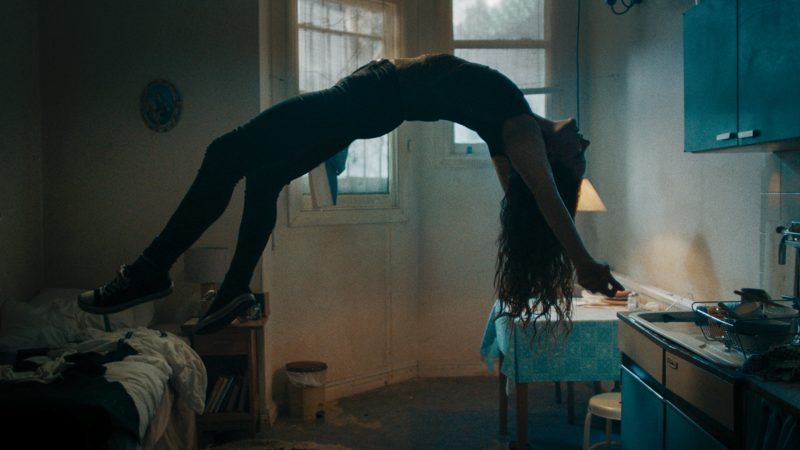Review: Saint Maud
Mind game.

Maud is a young Welsh woman living joylessly in a dull resort town on the north coast of England. She works as a live-in nurse, tending the terminally afflicted and carrying on an endless interior conversation with God. Maud's current employer, a once-famous dancer named Amanda Köhl, is dying of cancer. Amanda, an atheist, seems bitterly resigned to this, but Maud, a Catholic convert, believes that some part of the woman can still be saved, and that God has chosen her as His instrument in the matter. "It takes nothing special to mop up after the decrepit and the dying," Maud says inside her head. "But to save a soul, that's quite something."
Saint Maud is a first feature by the young English writer-director Rose Glass, and it entirely resists classification. Although its dark, uneasy atmosphere and sometimes gruesome imagery lean in the direction of horror—Roman Polanski's Repulsion is an obvious influence—it is not a full-on horror film itself (apart from one wild jolt toward the end). Nor are its religious issues just gothic window dressing—Glass, a onetime Catholic schoolgirl, has no interest in simply mocking them.
We know from the opening scene that something strange is going on with Maud (Welsh actor Morfydd Clark, of The Personal History of David Copperfield), and what it is soon becomes plain: Her personality is cratering as she is pulled deeper into an ecstatic religious obsession. The physical mortifications she inflicts upon herself—kneeling to pray on pebbly corn kernels, placing tacks inside her shoes and then squashing her feet down on them—are clearly tokens of something beyond spiritual devotion. And after arriving at Amanda's house, she is further disturbed by her employer's determination to maintain a connection to the libertine theatrical life she once led, which now includes a carnal relationship with a woman named Carol (Lily Frazer). "Am I indecent?" Amanda asks teasingly. "No," says Maud. "You're lost."
Amanda pretends to share Maud's commitment to God. "He's everywhere," Maud tells her. "He sees you. He won't let you fall." Amanda gazes at her with a small, cruel smirk that Maud doesn't detect. "My little savior," Amanda says.
The story takes a sudden turn when we see Maud out on the street one night, being hailed by an old friend (Lily Knight) who calls her by another name. Soon we learn that Maud once lived a very different life, and we watch as she falls back into it with a crash. Alcohol begins to flow, and there are anonymous handjobs in a pub and oblique mention of an unspecified trauma in Maud's past. ("What happened before, it wasn't your fault," says a onetime friend.) The movie swells with a surge of bloody violence toward the end, before delivering a final passage of vivid, poetic force.
The movie is only 84 minutes long, which is just right. Apart from the electric performances of its two leads, director Glass has also drawn striking work from composer Adam Janota Bzowski, whose sparse score (woozy cellos, lowing male chorales) functions as a supporting character in the film, and from Ben Fordesman, whose chiaroscuro photography provides a perfect ground for the film's burnished interiors and soft, milky skin tones. May all of these people work together again at some point soon.


Show Comments (26)